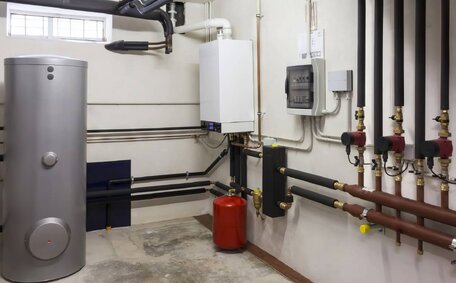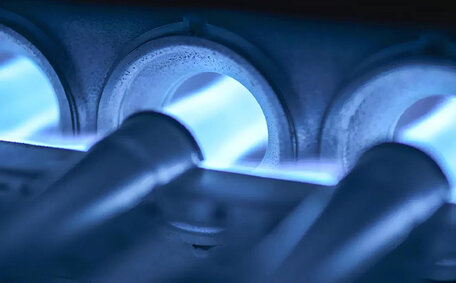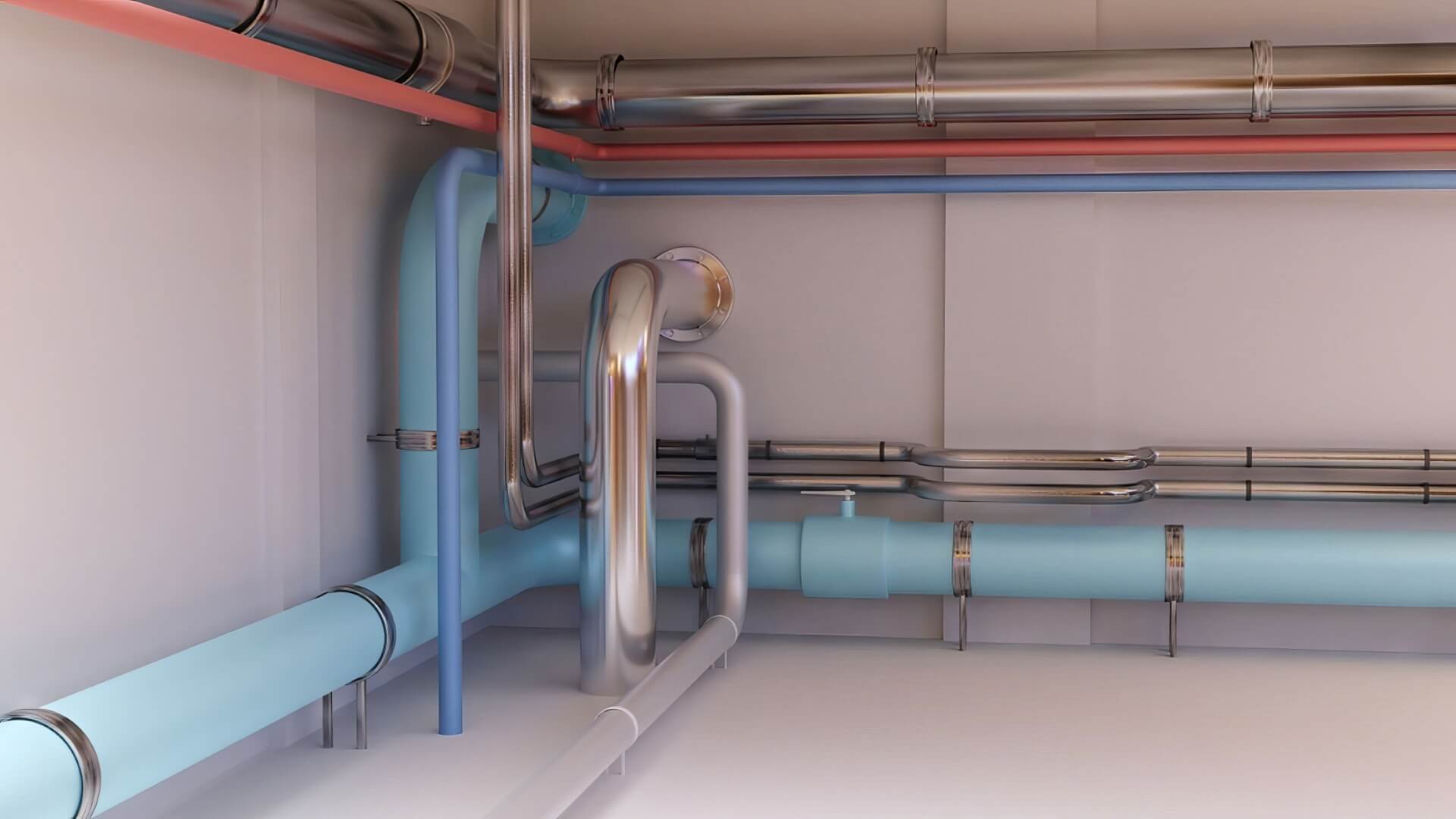Introduction to Hot Water Systems in Multi-Story Buildings
Designing hot water systems for multi-story buildings requires careful consideration of efficiency, safety, performance, and compatibility with the building’s design. As experienced plumbing experts, we understand the importance of proper hot water system selection and setup to meet the demands of residents while complying with regulations.
For multi-story buildings, the system’s location and size, water pressure issues, and maintenance accessibility are particularly crucial.
The number of occupants and their water need, peak usage times, appliance types and more will determine the appropriate system. We consider energy sources available, costs, and features of various system types like heat pumps, solar or gas continuous flow.
Our goal is to help you configure an optimally efficient continuous flow hot water system for your multi-story building. Our expertise extends to recommending and installing ideal solutions for new homes, high-rise developments, or updated hot water systems. Contact us today to learn more about the hot water system options for your project.
Safety Regulations and Placement Standards
When installing or upgrading the hot water system in a multi-story building, compliance to Australian standards and regulations is crucial for safety. This includes adhering to placement and proximity regulations for system components tailored to the building’s architecture.
In particular, when installing new gas hot water systems, compliance with strict specifications regarding their location is vital for managing flue gases and termination clearances. Openings or ignition sources must not be close to the flue outlet. Proper ventilation, as well as regular checks on the water meter, is also critical for the hot water system your building employs.
For system efficiency, it is best to place all units close to high hot water usage areas like kitchens and bathrooms. Long pipe runs result in more heat loss and delayed hot water delivery to taps. Placement should also consider ease of access for future repairs, maintenance, and hot water meter inspections.
Failing to follow safety regulations and manufacturer instructions on locating systems can increase risks of leaks, fire hazards from gas systems, legionella bacteria growth and other problems. Our experienced plumbers have the know how to navigate all the Australian standards required to advise on the optimal configuration for your building.
Optimizing Water Pressure and Flow
It’s important to maintain adequate water pressure in multi-story buildings to ensure sufficient flow reaches all taps. As height increases, water pressure drops due to friction, while demand rises with more occupants. Pressure optimisation is essential for ensuring the comfort of residents throughout the building.
We offer advice on manifold plumbing systems and efficient pressure management within your property’s vertical sections. Manifolds have outlets to supply each floor, regulated by valves to provide even flow hot regardless of tap height. They suit continuous flow hot water heaters as flow rate directly impacts their activation.
For buildings over 3 stories, additional in-line pumps may be needed, which can boost pressure to upper levels. Careful pump sizing and pressure settings are required to avoid extremes that could damage plumbing. Excessive pressure also increases leaks and water wastage.
Drainage must be assessed in centralised hot water systems to handle wastewater volumes. Appropriate system sizing and ventilation are critical to efficient wastewater flow. We customize solutions, ensuring optimal pressure and flow for existing buildings or new constructions.
Accessibility and Ease of Maintenance
It is essential for the installation of hot water systems in multi-story buildings to incorporate strategies that ensure efficient ongoing maintenance. Accessibility to components like pumps, valves and pipe connections for servicing is key.
We advocate grouping system components within a dedicated space, such as plant rooms at ground level or in the basement. This strategy allows streamlined access to your water system components, seamlessly integrating with your existing infrastructure without disrupting residents. Insulating hot water pipes throughout the building aids both energy conservation and system access.
For larger systems, manifold plumbing arrangements enable isolation and maintenance of specific sections without disrupting supply to individual apartments. Easy access to fittings and valves is essential for monitoring, repairs or upgrades over time.
Overlooking maintenance access could lead to substantial disruptions and an early end to the system’s lifespan due to challenges in replacing components in inaccessible areas. We design centralised hot water systems focused on safe, simple servicing to ensure continual hot water supply to your building.
Selecting Suitable System Types
Overview of Hot Water System Options
There are several types of hot water systems to consider for multi-story buildings, with different pros and cons in performance, costs, and suitability.
Heat Pumps
Heat pump water systems use a fan compressor and refrigerant gas to extract heat from the surrounding air, transferring it efficiently to your water supply.
Heat pumps can decrease water heating bills by more than 50%, thanks to their high energy efficiency and reduced scaling, as they don’t directly heat water.
Electric Storage
Electric hot water units utilise electricity, conducting heat through elements into a storage cylinder brimming with water.
Electric storage units offer a lower initial cost but incur higher operating expenses and are contingent on adequate mains voltage.
Gas Storage
Gas water storage heaters use a gas burner to effectively heat a dedicated storage tank of water. Quick recovery times are a benefit, but they still lag behind the efficiency of a modern pump water heater system. Continuous flow hot heaters are an instant gas heating option.
Gas storage systems require proper flueing and ventilation.
Solar Pre-Heat
Solar pre-heat systems use roof-mounted panels to harness daylight to heat water.
When recommending systems, including heat pump water systems, we consider efficiency, reliability, safety, costs, and ease of installation and maintenance for your building’s specific requirements.
Energy Efficiency Comparisons
When selecting a suitable hot water system for a multi-story building, assessing the energy efficiency of your hot water system is a key consideration to save on operating costs. We’ve compared common system types below on efficiency and running expenses:
As shown, heat pump hot water systems are clearly the most energy efficient option using around half the power of standard electric storage heaters. These units utilise renewable thermal energy from the air to transform cooled water into comfortably warm usage temperatures, bypassing heavy reliance on external fuel sources.
While electric and natural gas storage units have lower upfront costs, their higher operational expenditures accumulate considerably with time. Gas continuous flow units rival heat pumps in efficiency, but heat pumps have a longer lifespan and require less maintenance.
When advising multi-story buildings on hot water systems, we recommend heat pumps as the most cost effective and energy efficient solution in the long term.
Cost Considerations
When selecting a hot water system for a multi-story building, both upfront and ongoing costs should be evaluated. Initial purchase and installation costs vary significantly between systems - heat pumps have higher upfront expenses than electric storage but have greater long term savings.
Electric and gas storage tanks have more expensive water heating bills over time compared to highly efficient heat pumps. Solar systems involve high initial installation costs but harness renewable energy to offset water heating costs.
The usage demands in the building also need accounting - determining how much a system undersized for the number of occupants will struggle to meet hot water needs. We provide detailed lifecycle cost analysis for your apartment building, taking into consideration your specific requirements. Contact us to determine the most cost effective and efficient hot water solution for your multi-story building.
Installation and Configuration Tips
Correct installation and configuration of hot water split systems are essential for efficiency and performance in new multi-story buildings. Here are our expert tips for maintaining your hot water systems:
Minimise Pipe Runs
Installing the system close to high-demand areas like kitchens and bathrooms minimises pipe length. This reduces wasteful heat losses along pipe runs so your hot water arrives faster and stronger.
Insulate Pipes
Insulating hot water pipes conserves heat energy, regardless of the system type. Insulating cold water pipes is also vital to prevent condensation and reduce the risk of corrosion.
Set Up Valves and Pumps
Use manifolds with regulated valves to zone and optimise pressure on each building level as needed. Carefully size and adjust in-line pumps for adequate flow hot water without excessive pressure.
Involve Professionals
Ensure that qualified plumbers install systems in accordance with Australian Standards for safety, efficiency, and durability. Our oversight ensures a setup process compliant with standards for maximum safety and efficiency.
Contact our team for further tips tailored to your multi-story building project requirements.






